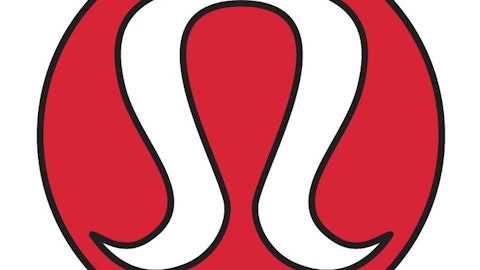If given the choice to play a game for fun or with the potential to win some reward, I would take the bet and go for the prize.

While I enjoy a good game as much as the next person, there’s a greater incentive and rush involved with winning something. Maybe it’s because I have lived within miles of the Atlantic City, N.J. skyline that I have a penchant, or at least an appreciation, for what the casinos have to offer.
That’s why I don’t really see how a game like Candy Crush Saga can command the cult-like following that it’s created, let alone inspire parent company Midasplayer International, or King, consider an IPO. Nonetheless, that’s exactly what the online gaming company is considering at around the same time that the tide for online gambling is beginning to turn in the U.S.
According to a Wall Street Journal report, King has hired JPMorgan Chase & Co. (NYSE:JPM), Bank of America Corp (NYSE:BAC) and Credit Suisse Group AG (ADR) (NYSE:CS) to explore a possible debut in the public markets.
So how is King going to be able to compete in an industry where online gambling is becoming legalized state by state? The U.S. online gambling market is projected to reach some $9.3 billion by 2020, according to a Morgan Stanley report cited in Online Casino Reports. Some of the states that have taken the lead on this are Nevada and New Jersey, where legislation for legalized and regulated online gambling has already taken shape.
Indeed, some policymakers are pushing for federal legislation tied to online gambling for the sake of uniformity and consumer protection. This could open the floodgates in terms of the types of businesses that could obtain the proper licenses and operate as online gambling meccas.
Know when to hold ’em
Currently, the upper hand goes to casinos companies such as Boyd Gaming Corporation (NYSE:BYD) and Caesars Entertainment Corp (NASDAQ:CZR). Casinos are already positioned to capitalize on the industry’s paradigm shift and face the least amount of red tape in doing so. It’s not often that you hear the U.S. associated with any ’emerging’ opportunity, but in fact this is how online gambling can be characterized. In Boyd Gaming Corporation (NYSE:BYD)’s 2012 annual report, the company boasts of how it’s well positioned to capitalize on the “emerging domestic online gaming industry.”
Boyd Gaming Corporation (NYSE:BYD) already operates in Las Vegas and Atlantic City, N.J., in addition to a handful of other states. In the first quarter, the company grew its revenue 16.4% to $737 million compared with the year-ago period.
In the first quarter, the company was mired in $4.1 billion in debt and had a cash balance of $322 million. This will slow its growth but if the company manages its balance sheet more efficiently this time around it can emerge stronger.
To be fair, the company is vulnerable to economic and consumer trends, and this can create headwinds that are out of its control. For instance, Boyd Gaming Corporation (NYSE:BYD) has faced challenges such as the fallout from New Jersey’s Hurricane Sandy, the emergence of a payroll tax that consumers continue to grapple with and delays in tax refunds from the 2012 tax year. Boyd Gaming Corporation (NYSE:BYD) also benefited from tailwinds such as a recovering housing market and rising stock market, all of which play into consumer sentiment and spending.
Perhaps the most compelling catalyst for this company is its first-mover advantage in the online-gaming market. It will be among the first to offer online gaming in New Jersey and expects that it will be able to capture share quickly with its well-known Borgata brand, in which it has a 50% stake. Boyd Gaming Corporation (NYSE:BYD) is also considering offering online poker in Nevada but the company admits that the market there is going to be “robust and crowded,” according to the first-quarter earnings call. These opportunities are long-term in nature and yet remain nascent, a combination that doesn’t come along every day.

